Few would expect that natural farming techniques (no machinery, no chemical fertilizers, minimal weeding, and no pollution) could yield orchards full of fruit and rice fields with yields equal to or greater than those of experimental plots. Moreover, the soil on his land improved and became increasingly fertile over time.
Masanobu Fukuoka and a Strange Life
Born and raised in a village on Shikoku Island, Fukuoka's childhood was spent in the orange orchards and rice fields tended by his father. At that time, until he studied at Gifu Agricultural College, he had no concept of “natural agriculture,” like many others.
On the other hand, he was pursuing his passion for plant pathology research and had many impressive achievements. Notably, he worked for a long time at the Agricultural Customs Office in Yokohama, where his job involved evaluating and selecting the best crops for Japan. It was during this time, in close contact with nature, that he shared, “I was amazed by the natural world through a microscope.”
After three years of work there, facing immense job pressure, Masanobu Fukuoka nearly died from a lung disease. This incident made him think deeply and led him to a decision that stunned all his colleagues: to quit his job and wander in search of the meaning of life. From a well-trained individual who believed in science, he made a 180-degree turn and devoted himself to “fighting science,” opposing a world that destroys nature, particularly how science forces nature to go against its own development.
After a night of wandering, awakening to the call of a heron, he realized many things. More accurately, he felt embraced by a lush green world, where nature welcomed him back to its most beautiful essence. A new world opened up to him, and a new life awaited him: one connected with nature! He dedicated the rest of his life to living and practicing the philosophy of natural farming!
He shared the moment of this realization in The One-Straw Revolution, stating, “In an instant, all my doubts and the gloom of my despair vanished. Everything I once firmly believed and relied upon was swept away by the wind... I felt this was truly paradise on Earth...”
After discovering this philosophy of life, he tried to explain it to his colleagues (and others he met along the way). Naturally, everyone dismissed him, viewing him as eccentric. This was around the year 1930, a time when science enjoyed absolute trust. The emergence of Masanobu Fukuoka with his philosophy was indeed strange (and perhaps still is?). He then left his job and returned to his father's farm to live out and practice his beliefs.
Of course, in the early days, he faced certain difficulties. Specifically, he left his father's orange orchard “natural,” and as a result, the trees died. This taught him another, more valuable lesson: “Natural farming does not mean neglecting the land.”
Through practice, calculations, and his closeness to the soil, he eventually succeeded on his home hillside. The results at that time were astonishing: His rice fields, which were not kept flooded, matched or exceeded the yields of those employing Japan’s top scientific techniques. His citrus orchards produced nearly nine tons of oranges each year, which he sold in Tokyo—a place where people were unfamiliar with natural foods.
One notable detail about Fukuoka is that when selling his natural oranges in Tokyo, he never sold to those who wanted to raise prices based solely on the label “clean.” He proposed a kind philosophy: natural crops require no effort, so why sell them at high prices? This remains a pressing question to this day!
Not stopping at his home garden, his vision for natural farming reached a global scale. With the *Sowing Seeds in the Desert* project, he hoped that one day deserts would be filled with trees, and the planet would be greener. He wished that someday, Earth would truly be a paradise, a place where people live in peace, freedom, and happiness.
Additionally, throughout his life, Fukuoka offered many life philosophies and specific agricultural techniques. This old farmer also discussed diet, politics, and economics through the eyes of someone connected with nature. He believed that humanity was heading in the wrong direction as we became increasingly detached from nature.
Masanobu Fukuoka’s Natural Farming Methods
Before diving into Fukuoka’s natural farming philosophies, it’s important to understand a valuable life principle: nature is a whole. In it, we humans are merely a part. Living within nature requires following its laws (not conquering it or adhering to the lofty ideals that humans arrogantly impose).
Fukuoka’s natural farming methods are simple and do not require scientific techniques. In other words, his approach to farming avoids modern technology. Specifically, his unchanging principles consist of four rules:
-
1. No tilling the soil.
-
2. No fertilizing (chemical or organic).
-
3. No weeding (including tilling or raking, and of course, no herbicides).
-
4. No chemicals for pests.
Hearing these four lines, we—those who have not lived as he did—might easily reject them. After all, is natural farming really that simple? Doesn’t it cost money, time, and effort, or pose risks of toxicity?
In reality, not doing anything in Masanobu Fukuoka’s farming philosophy is not as simple as it seems. He does not suggest to future generations that they lie down, hug trees, and wait for rabbits, sleep while waiting for rice to ripen, or do nothing at all. In his books, he clearly states: “Care for the plants initially, monitor their growth, study and intervene with the plants, and observe how the soil recovers. Additionally, it’s essential to understand the growth cycles of crops, weeds, and pests to find the best ways to sow seeds...”
Importantly, before practicing planting as Fukuoka suggests, one must grasp his perspective: Nature is inherently fertile. The soil is rich, a harmonious home for plants, humans, and other organisms. Only we, due to our greed, anger, and ignorance, have made the land barren, exhausted, and increasingly desertified. Today, the Earth is no longer green, and this reality will become clearer over time!
Thus, once we agree with this perspective, we will arrive at a very accurate conclusion of his: We must revive the soil. How? By following his detailed guidance: sowing appropriate plants, replenishing the soil's damage with organic matter and microorganisms. And then, allowing nature to heal its own wounds, the land will become fertile again.
This is the precious life philosophy that Masanobu Fukuoka left for future generations.
For countries, to sow seeds in the desert, learn from him. Let’s green the hills and deserts encroaching on land to save the Earth for the future.
For those who wish to become farmers, learn from him to start a clean agricultural practice in your own garden. Improve the soil and learn the beneficial aspects of his philosophy, then progress towards fully practicing natural farming.
For anyone reading Masanobu Fukuoka’s story, take the time to reflect. Consider your daily meals (are the vegetables we eat truly clean? It’s hard to say, even if they’re labeled as clean and safe). Think about bigger issues, about our planet slowly drying up due to humanity's insatiable greed!

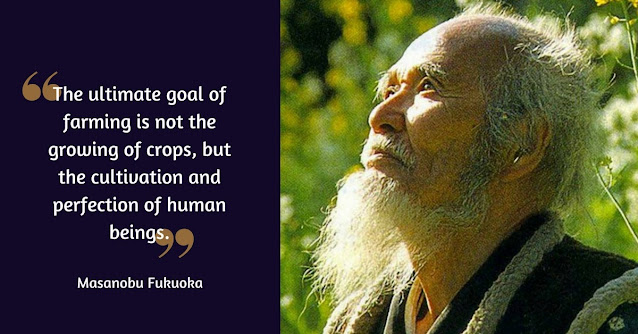
 The most unique carrots in the world!
The most unique carrots in the world!
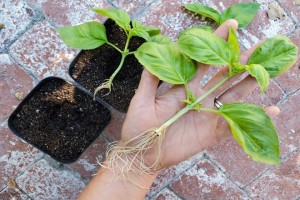 Guide to Propagating Basil Cuttings for Beginners
Guide to Propagating Basil Cuttings for Beginners
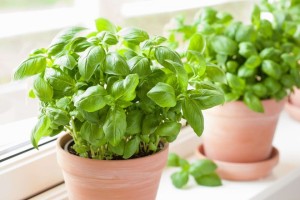 How to take care of basil plant indoors for Beginners
How to take care of basil plant indoors for Beginners
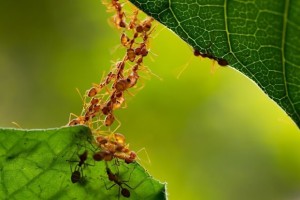 Interesting Facts About Ants
Interesting Facts About Ants
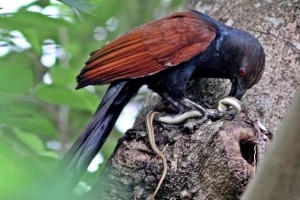 Coucal bird: Natural Enemy of Snakes
Coucal bird: Natural Enemy of Snakes